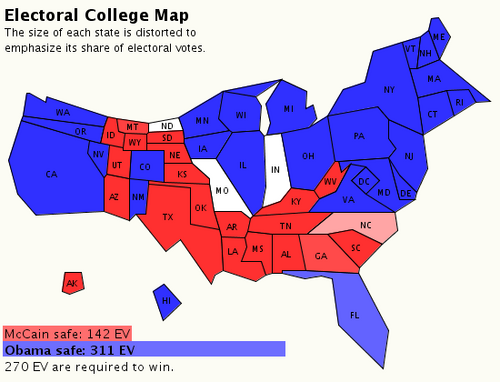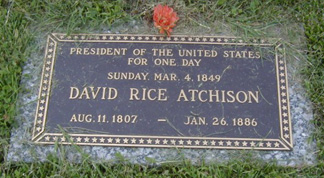 In Footnote 12 of her dissenting opinion in Ricci v. DeStefano (the controversial New Haven fire-fighters racial discrimination case), United States Supreme Court Justice Ruth Bader Ginsberg makes reference to a 25-year old decision of the First Circuit Court of Appeals known as Boston Chapter, NAACP v. Beecher. The case is mentioned in the context of Justice Ginsburg’s analysis of the legitimacy of written examinations as a way to determine which firemen were to be promoted, which is the primary issue in the case.
In Footnote 12 of her dissenting opinion in Ricci v. DeStefano (the controversial New Haven fire-fighters racial discrimination case), United States Supreme Court Justice Ruth Bader Ginsberg makes reference to a 25-year old decision of the First Circuit Court of Appeals known as Boston Chapter, NAACP v. Beecher. The case is mentioned in the context of Justice Ginsburg’s analysis of the legitimacy of written examinations as a way to determine which firemen were to be promoted, which is the primary issue in the case.
The First Circuit case involved an issue similar to that in Ricci, and in it the plaintiffs won a ruling overturning the state of Massachusetts’ practice of using performance on a multiple choice examination to determine which firemen were eligible for promotion.
After citing the case by name (as the third of three cases mentioned in a footnote beginning, “See also”), the opinion includes a brief quote from the decision, to the effect:
[T]here is a difference between memorizing . . . fire-fighting terminology and being a good fire fighter. If the Boston Red Sox recruited players on the basis of their knowledge of baseball history and vocabulary, the team might acquire [players] who could not bat, pitch or catch.
For those engaged in the culture war that divides the world into Red Sox fans and Yankee fans, it may seem significant that the Supreme Court, albeit in a dissenting opinion (joined by Justices Souter, Stevens, and Breyer), implies that the quintessential American baseball team is the Boston Red Sox. (Two of the Justices that joined her dissent, Souter and Breyer, have long-standing New England connections, and while Justice Ginsburg is normally thought of as a New Yorker, she did begin her legal education at the Harvard Law School.)
Of course, the obvious explanation for the reference to the Red Sox is the setting of the case. As its name suggest, the Boston Chapter case was litigated in Boston; the First Circuit Court of Appeals sits in Boston; and Judge Levin H. Campbell, the author of the opinion, was a Harvard graduate who resided in the Boston area.
Born in 1927, Judge Campbell was a New Jersey native and a graduate of both Harvard College and Harvard Law School. He had remained in Massachusetts, and prior to his appointment to the First Circuit in 1972 by President Richard Nixon, he had served as a state legislator, an assistant state Attorney General, and as a judge on Massachusetts Supreme Judicial Court and the United States District Court for Massachusetts. Campbell later served as Chief Judge for the First Circuit (from 1983-1990), and he assumed Senior Judge status in 1992. At age 83, he continues to hear cases.
It is hard to know how much of a Red Sox fan Judge Campbell was in 1974. None of his prior opinions had contained references, gratuitous or otherwise, to the Red Sox, and Google and Nexis searches fail to turn up any evidence of a rabid fandom, although it is clear that his brother, Worthington Campbell, an Episcopal priest, was a fervent supporter of the amateur Cape Cod Baseball League. Moreover, in a case argued before him only three weeks after he issued his Boston Chapter opinion, Judge Campbell ruled that a private Little League baseball organization that used municipal facilities could not discriminate against female players. Of course, as a public official in Massachusetts, some degree of loyalty to the Red Sox was, and is, obligatory.
Whatever Judge Campbell’s personal views on the team, September 18, 1974, the day of the Boston Chapter opinion, was a day of anguish for Red Sox nation. For most of the 1974 season, the Red Sox had appeared to be on their way to a division championship. As late as August 21, the team was in first place by seven games, but it soon fell into a tailspin. By Labor Day, the lead was down to one game, and on September 5, the team fell out of first place completely and now trailed the Yankees by one-half game. After that, it only got worse. By September 18, the Sox were riding a three game losing streak, and their record had fallen to a mediocre 76-71. The club was now in third place, 3.5 games behind the Yankees and 2.0 games in back of the second place Orioles.
At this point many Red Sox fans were probably beginning to question the criteria that had been used to select the team’s current players.
Who was John Kiernan?
In addition to what it may tell us about New England and the Red Sox in 1974, Campbell’s Boston Chapter opinion contains a puzzle that has never been conclusively solved. Because it was omitted from the language quoted by Justice Ginsburg, one has to return to the text of the original opinion to discover the problem.
The actual text of the language quoted by Justice Ginsburg, without ellipses and brackets, is as follows:
The second-part questions deal with fire fighting, yet there is a difference between memorizing (or absorbing through past experience) fire fighting terminology and being a good fire fighter. If the Boston Red Sox recruited players on the basis of their knowledge of baseball history and vocabulary the team might acquire authorities like the late John Kiernan but no one who could bat, pitch or catch.” [Emphasis added.]
The most obvious omission on the part of Justice Ginsburg is the reference to “the late John Kiernan.” In Campbell’s opinion, it is “Kiernan” who epitomizes the separation of knowledge and real world experience that the fire department may want to avoid. So who was John Kiernan, and why didn’t Justice Ginsburg choose to mention him when quoting from Campbell’s opinion?
The short answer to the first question is that it is not clear to whom Judge Campbell was referring.
John Kiernan was a somewhat common name in the Boston area in the first half of the 20th century, but none of the John Kiernans whose careers predate 1974 appear to have any special reputation for detailed baseball knowledge. One possibility is the long distance runner and Spanish-American War veteran John Kiernan who in 1897 finished second in the first ever Boston Marathon. However, this John Kiernan was an actual athlete, and there is no evidence that he was known as expert on sports. Furthermore, he spent most of his life as a sanitation worker in New York City and passed away in 1927, the year that Judge Campbell was born, so he seems an unlikely candidate.
Based on the structure of the quotation one would have suspected that John Kiernan was a sportswriter or a journalist, or perhaps a college professor, but none of the John Kiernan’s of Boston pursued those careers.
The most likely candidate for Campbell’s “John Kiernan” is a well-known New York Times sportswriter and knowledge impresario whose name was actually John Kieran, not John Kiernan. Many different aspects of Kieran’s background strongly suggest that it was he to whom Campbell referred.
John Francis Kieran (born 1892) was the long time sports editor of the New York Times as well as a widely read sports columnist for the Times and other newspapers. (He was the originator of the “Sports of the Times” column that still appears in the New York Times.) He was also well known in the 1930’s and 1940’s because of his decade-long participation on the popular NBC Radio quiz show, Information Please! As a regular on the show who displayed impressive knowledge on an extraordinarily wide array of subjects, Kieran developed a national reputation as a repository of arcane information. He was also the editor of the Information Please Almanac which was founded in the 1940’s to compete with the World Almanac as a single-volume compendium of information. Kieran was so well known and highly regarded that his name appeared on the cover of the Almanac’s early editions.
While his reputation for expertise extended far beyond the world of bats and balls, he was of course an authority on sports and sports history. He was, for example, the co-author of one of the first histories of the Olympic Games, and his 1941 work, The American Sporting Scene, was a widely read history of early 20th century American sport. He is also credited with coining the phrase “grand slam” in reference to the four major men’s tennis tournaments.
After Information Please! left the radio airways in 1948, Kieran made the transition to television where he hosted a knowledge-oriented show called Kieran’s Kaleidoscope. Furthermore, although he was a superb bridge player, Kieran was apparently not known as a talented athlete himself, presumably a requirement for person used in Campbell’s example.
Judge Campbell was eleven years old when Information Please! debuted, and like most Americans with access to a radio, he would have known about Kieran. Moreover, after his retirement from New York journalism in the 1950’s, Kieran, an amateur ornithologist, moved to Rockport, Massachusetts, which is north of Boston and within the jurisdiction of Campbell’s court.
Based on all of this, it makes perfect sense that in 1974, the 47-year old Judge Campbell would make reference to Kieran, if he was looking for someone who stood for a great degree of knowledge, but knowledge not necessarily related to experience or real world ability. The incorrect name may well be a typographical error, but if Judge Campbell himself erred in misspelling Kieran’s name, he was hardly alone. Google and Nexis searches reveal that Kieran’s surname was frequently misspelled Kiernan both during his lifetime and afterward. (As recently as February 1992, the Boston Globe referred to him as “John Kiernan.”)
The only problem with the theory that Judge Campbell’s reference to “John Kiernan” was actually to John Kieran is the judge’s phrase “the late John Kiernan.” In 1974, Kieran was very much alive and still living in Rockport, Massachusetts. He had, in fact, just published a revised edition of his history of the Olympic Games the year before. Kieran would live in the Bay State for another seven years before passing away at age 89 in 1981.
Of course, by 1974, Kieran had long been out of the public view, and his retirement years had been largely devoted to bird watching and nature writing. Judge Campbell may have been unaware of Kieran’s more recent activities and simply assumed that he had passed away somewhere along the line. Apparently, the judge’s law clerk didn’t catch either the spelling error or the mortality error either. (Campbell’s law clerk in 1973-74 was a young University of Chicago Law School graduate named Frank Easterbrook, now a distinguished judge on the Seventh Circuit Court of Appeals. However, it appears that Easterbrook had departed before the First Chapter opinion was handed down in September.)
If Kieran ever learned of the opinion’s reference to his supposed demise, he no doubt took solace in the observation of Mark Twain, one of his favorite writers, who famously quipped, “The reports of my death are greatly exaggerated.”Whether Kieran would have been as forgiving for Judge Campbell’s disparagement of his athletic ability is a different question.
The final question is why did Justice Ginsburg omit Kieran’s name from the portion of Campbell’s opinion that she quoted in her dissent, particularly since the concrete example provided in the original gives weight to the analogy that she is embracing. Moreover, it is hard to believe that Justice Ginsburg would not have recognized who John Kieran was.
Justice Ginsburg was born in Brooklyn in 1933, and would have just been coming of age in New York City at the time of Kieran’s greatest popularity. By all accounts a superb student, it seems unlikely that she would have been unaware of one of the city’s best known celebrity “intellectuals.” (One also suspects that she was a regular listener to Information Please!)
Perhaps she omitted the name because she sensed that most Americans in 2009 would have no idea who Kieran was—which is sadly true. Perhaps she did not want to distract the reader of the opinion who might feel tempted to stop reading and look up Kieran in Wikipedia. Or perhaps she was thrown off by Judge Campbell’s misspelling of Kieran’s name. She may not have realized that Campbell’s “John Kiernan” was actually the John Kieran of Information Please! fame.
On the other hand, it is only a footnote.
Cases Cited:
Ricci v. DeStefano, 129 S. Ct. 2658 (2009).
Boston Chapter, NAACP v. Beecher, 504 Fed.2d 1017 (1st. Cir. 1974), cert. den. 421 U.S. 910 (1975).
Fortin v. Darlington Little League, 514 F.2d 344 (1st Cir. 1975).
 One of the many unusual features of the Electoral College established by Article II, Section 1, of the United States Constitution is the provision that specifies that each state shall have “a Number of Electors equal to the whole Number of Senators and Representatives to which the State may be entitled in the Congress.”
One of the many unusual features of the Electoral College established by Article II, Section 1, of the United States Constitution is the provision that specifies that each state shall have “a Number of Electors equal to the whole Number of Senators and Representatives to which the State may be entitled in the Congress.”

